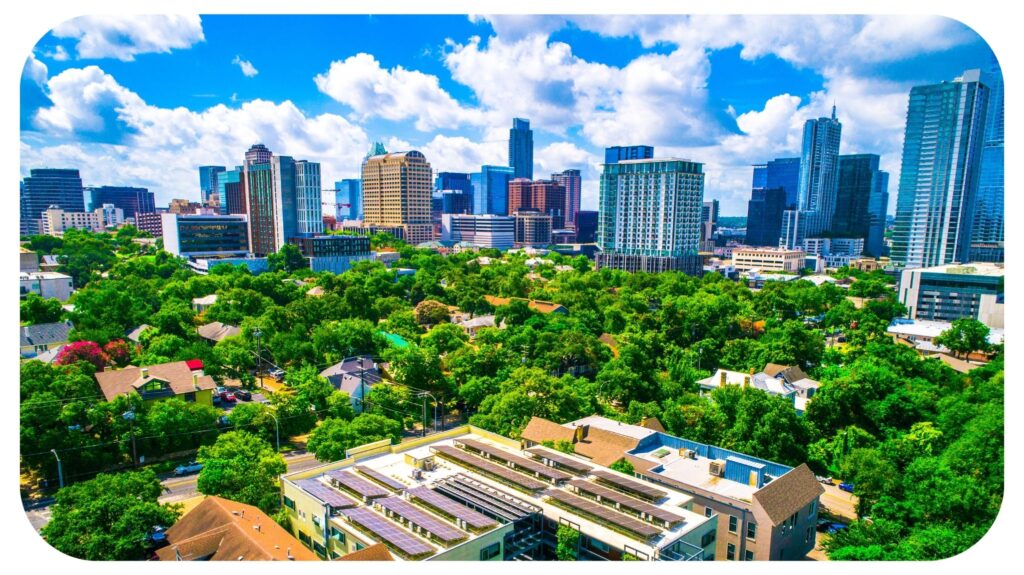Powering the Cities of Tomorrow

As urbanization accelerates and the demand for energy grows, cities of the future face a pressing challenge: how to power themselves sustainably, reliably, and affordably. With climate change concerns and finite fossil fuel resources, the traditional energy sources of coal, oil, and natural gas are no longer viable options for long-term urban energy strategies. Instead, cities are turning towards innovative and diverse energy solutions to meet their growing needs while minimizing environmental impact.
Let’s delve into some potential pathways for powering the cities of tomorrow.
Contents
ToggleRenewable Energy Revolution
One of the most promising trends in urban energy is the rapid advancement and adoption of renewable energy sources. How will renewable energy in Orlando, for example, look years from now? How will technology play a part? Solar, wind, hydroelectric, and geothermal power offer clean and abundant alternatives to fossil fuels. Cities are increasingly investing in solar panels on rooftops, wind turbines in urban outskirts, and harnessing hydroelectric power from nearby rivers.
Innovations in energy storage technologies, such as advanced batteries and pumped hydro storage, are addressing the intermittency issues associated with renewables, ensuring a stable and reliable power supply even when the sun isn’t shining or the wind isn’t blowing. Furthermore, smart grid technologies enable better integration of renewable energy sources into the existing energy infrastructure, optimizing energy distribution and consumption patterns.
Decentralization and Microgrids
The future of urban energy lies in decentralization. Rather than relying solely on large, centralized power plants, cities are embracing a distributed energy model. Microgrids, which are localized energy systems capable of operating independently or in conjunction with the main grid, offer increased resilience, efficiency, and flexibility.
By decentralizing energy production through microgrids, cities can reduce transmission losses, enhance grid stability, and mitigate the impact of outages or disasters. Communities can also achieve greater energy independence and security by generating power locally from renewable sources like rooftop solar panels or small-scale wind turbines.
Energy Efficiency and Conservation
An often overlooked but crucial aspect of future urban energy planning is energy efficiency and conservation. Cities can significantly reduce their energy consumption and carbon footprint through building retrofits, efficient lighting systems, smart meters, and intelligent urban planning.
Advancements in building design, materials, and technologies are enabling the construction of highly energy-efficient structures that require minimal heating, cooling, and lighting. Additionally, smart appliances, sensors, and energy management systems empower residents and businesses to monitor and optimize their energy usage, ultimately leading to substantial energy savings and cost reductions.
Electrification of Transportation
The transportation sector represents a significant portion of urban energy consumption and carbon emissions. As cities strive to become more sustainable, electrification is emerging as a transformative solution. Electric vehicles (EVs), powered by clean electricity from renewable sources, offer a cleaner and more efficient alternative to conventional gasoline and diesel vehicles.
Cities are investing in EV infrastructure, including charging stations and battery-swapping facilities, to support the widespread adoption of electric vehicles. Additionally, initiatives such as electric public transit, bike-sharing programs, and pedestrian-friendly urban designs are promoting sustainable transportation options and reducing reliance on fossil fuels.
Innovative Technologies and Beyond
Beyond the mainstream renewable energy sources, researchers and innovators are exploring a myriad of cutting-edge technologies to power the cities of the future. From tidal and wave energy to advanced nuclear reactors and fusion energy, there is no shortage of ambitious ideas on the horizon.
Emerging technologies like hydrogen fuel cells, carbon capture and storage, and even space-based solar power hold the potential to revolutionize urban energy systems in the coming decades. While some of these concepts are still in the experimental or early stages of development, they represent exciting possibilities for addressing the challenges of urban energy sustainability.
Conclusion
The cities of tomorrow will be powered by a diverse and dynamic mix of renewable energy sources, decentralized infrastructure, energy-efficient technologies, and electrified transportation systems. By embracing innovation, collaboration, and sustainable practices, cities can pave the way towards a cleaner, greener, and more resilient energy future. With careful planning, investment, and commitment, we can build cities that thrive without compromising the well-being of future generations or the health of the planet.
Recommended For You
How To Get High Ticket Clients For Your Services
Most Inside
Most Inside offers high-quality recommendations and valuable updates to enhance all aspects of your life, providing premium guidance and enriching experiences.




